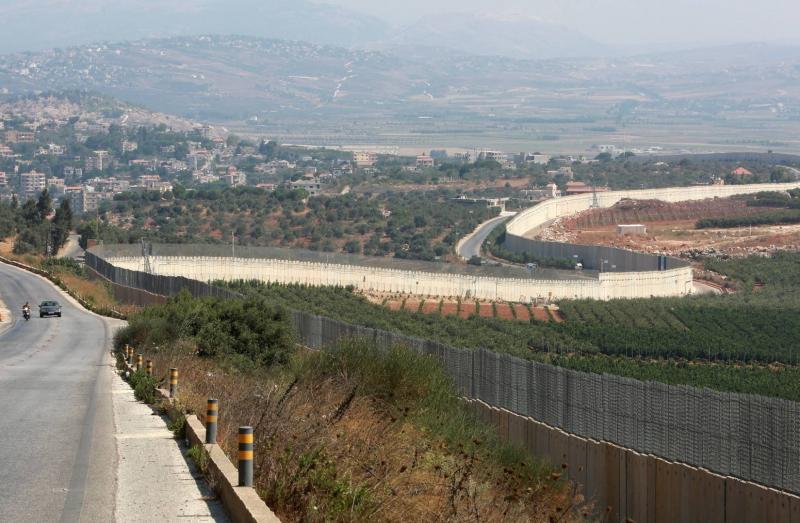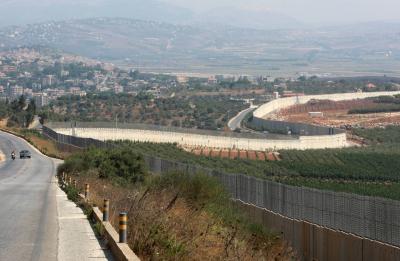As negotiations for a ceasefire agreement between "Hamas" and Israel approached a decisive moment, amid caution regarding the outcomes of "the last five minutes" and the potential "landmines" they might hold, the parallel front in southern Lebanon seemed to be in a state of anticipation regarding the results of efforts to achieve a "phased" truce in Gaza and to extract an understanding from the complexities related to whether a ceasefire that "hands over" the other is connected to a clear conclusion titled (end of the war) once and for all, with a (non-reversible) guarantee that the invasion of Rafah is "put on the shelf."
Although Beirut found a space for "verbal warfare" concerning the issue of Syrian displacement and the financial package of one billion dollars (until 2027) announced by the European Union for Lebanon, questioning whether it is a "bribe to keep the displaced on its land" or a wake-up call reaffirming the "Land of Cedars" internationally, this battle "on the surface," which came closer to "fighting windmills," as the "lock and key" in this file oscillates between the hands of the Syrian regime and the West in their negotiations over the foundations of the solution to the Syrian crisis, has not been able to mask the anxious waiting regarding Gaza ceasefire negotiations in the event that the "last chance" falters or even if it surpasses the "thorns path" more precisely.
While the "radars" of Arab and Western capitals were focused on last-quarter diplomacy fraught with risks of failure to achieve a ceasefire in Gaza—an outcome that could cause cascading repercussions on multiple fronts—Lebanon's "share" of observation was significant given the fear of rapid translations of any negotiation collapse on the southern front. At the same time, there was a lack of clarity regarding the "organizer" of this front if the agreement is reached, amid a clear impossibility of returning to the previous status before the "Al-Aqsa Flood" or transitioning to the side of Israeli conditions, which "Hezbollah" sees as a way of "gaining in diplomacy what was not obtained in the field," asserting that Tel Aviv is not in a position to impose its "version" regarding any arrangements in southern Lebanon under the title of Resolution 1701 or otherwise.
Informed circles noted to Al-Rai newspaper that the field witnessed a kind of relative withdrawal in clashes on both the Lebanese and Israeli sides recently, which circles not far from the resistance axis deemed due to two reasons: first, creating space for the Gaza ceasefire negotiations to take their course; and second, the desire to avoid "stealing the thunder" from the loud announcement by the Houthis about starting a new phase of escalation against ships "up to the Mediterranean Sea (...) in the event of a Rafah invasion," thus aiming to allow "those concerned to absorb the shock."
Despite the announcement being framed within the context of drawing lines for "offensive defense" from the resistance axis against any failure of negotiations or Israeli insistence on separating the paths of the supposed ceasefire and the Rafah invasion, it reflected the urgency of what the situation could entail should there be a cutoff of what might constitute an "exit cord" for various parties from a trap that everyone is now caught in. The Houthis' leading role in this context also indicates Tehran's strategic decision to refrain from a "great collision," which can only occur by "two detonators": the first being pressure on Iran to engage directly in war, and the second being "Hezbollah" through its involvement in a confrontation of "either you kill or you are killed."
Amid this anticipation, there is a deepening conviction in Beirut that any framework for the "next day" in Lebanon, which remains exclusively tied to stopping the Gaza war, will only materialize through American mediation to be undertaken by Amos Hochstein. He is expected to arrive in Beirut once the first phase of the agreement concerning Gaza is announced, in an attempt to regulate the southern front in accordance with ceasefire developments and to launch a mutual de-escalation process based on a gradual understanding of the nature of the agreement concerning the sector and its resilience. This is grounded in the framework agreement that the American envoy has been working on since the "Al-Aqsa Flood" and the opening of "war on distractions," which allows for a cessation of escalation and a gradual establishment of reciprocal steps in the form of security-military arrangements or guarantees that will permit, at the appropriate time, the return of displaced individuals from both sides and reinforce the army's presence along with addressing military manifestations, ultimately leading to an agreement on contentious land points that imply a smooth implementation of Resolution 1701.




